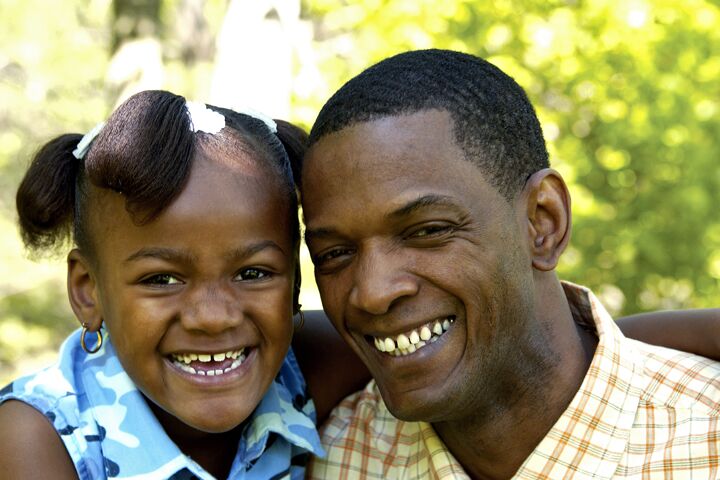
Review: Active Fathers Critical to Children’s Health
A review published in this month’s issue of Acta Paediatrica says that active fathers play a key role in reducing behavioral problems in boys and psychological problems in girls. The comprehensive review (which you can read in full here) looked at 24 papers published between 1987 and 2007 on the role of the father in childhood development.
After reviewing the studies, researchers concluded that boys with active fathers are less likely to experience behavioral problems as they mature:
Boys were found to benefit from a cohabiting father resulting in less aggressive behavior in a socio-economically disadvantaged sample of 326 children. In a socially much more advantaged population of 600 children with intact families, boys with a highly engaged father had less behavioral problems during the early school years than boys with less engaged fathers during the preschool years. A form of behavioral problem significant during the teens and early adulthood, delinquency or criminality, was also affected by father involvement. Specifically, high father engagement in poor families (with stable marriages) predicted lower incidence of delinquency during the early adult years for both sexes.
Researchers also noted that active fathers have similar beneficial effects on the psychological well-being of girls:
The risk of psychological morbidity during adulthood for women was decreased by their father’s engagement in them at age 7 (reads to child) and at age 16 (interested in child’s education) …. In the National Survey of Children from the U.S., an engaged father in socially more advantaged families … had a protective effect against emotional distress in young adulthood.
After studying the review, ScienceDailyreported that “Swedish researchers also found that regular positive contact reduces criminal behavior among children in low-income families and enhances cognitive skills like intelligence, reasoning and language development.”
Dr. Anna Sarkadi, from the Department of Women’s and Children’s Health at Uppsala University, Sweden, participated in the review and commented on the practical benefits for children with an active father:
Our detailed 20-year review shows that overall, children reap positive benefits if they have active and regular engagement with a father figure. For example, we found various studies that showed that children who had positively involved father figures were less likely to smoke and get into trouble with the police, achieved better levels of education and developed good friendships with children of both sexes.
Dr. Sarkadi also noted that “[p]ublic policy has the potential to facilitate or create barriers to fathers spending time with their children during the crucial years of early development.” She was primarily referring to the manner in which many fathers are forced to spend most of their time out of the home and away from their children in an effort to work to support the family.
But the cultural assault on fatherhood is much more dire than that. A movement is afoot to portray fathers as unimportant and unnecessary. The institution of traditional marriage and family itself is more commonly considered merely temporary, if not entirely antiquated. The Western intellectual establishment and mainstream media corporations have hypothesized and pop-culturized the essential father right out of the Western family. Society has now “advanced” to a state where a masculine, loving, leading father is not only hard to find, but also considered archaic and even evil by experts in psychology, sociology, mass media and government.
To understand more deeply the vital significance of fathers, read our booklet Conspiracy Against Fatherhood. Practical instruction on how to recapture some of the fundamental qualities of strong fathers can be found in the Trumpet’s August 2004 article “Fatherhood 101.”
